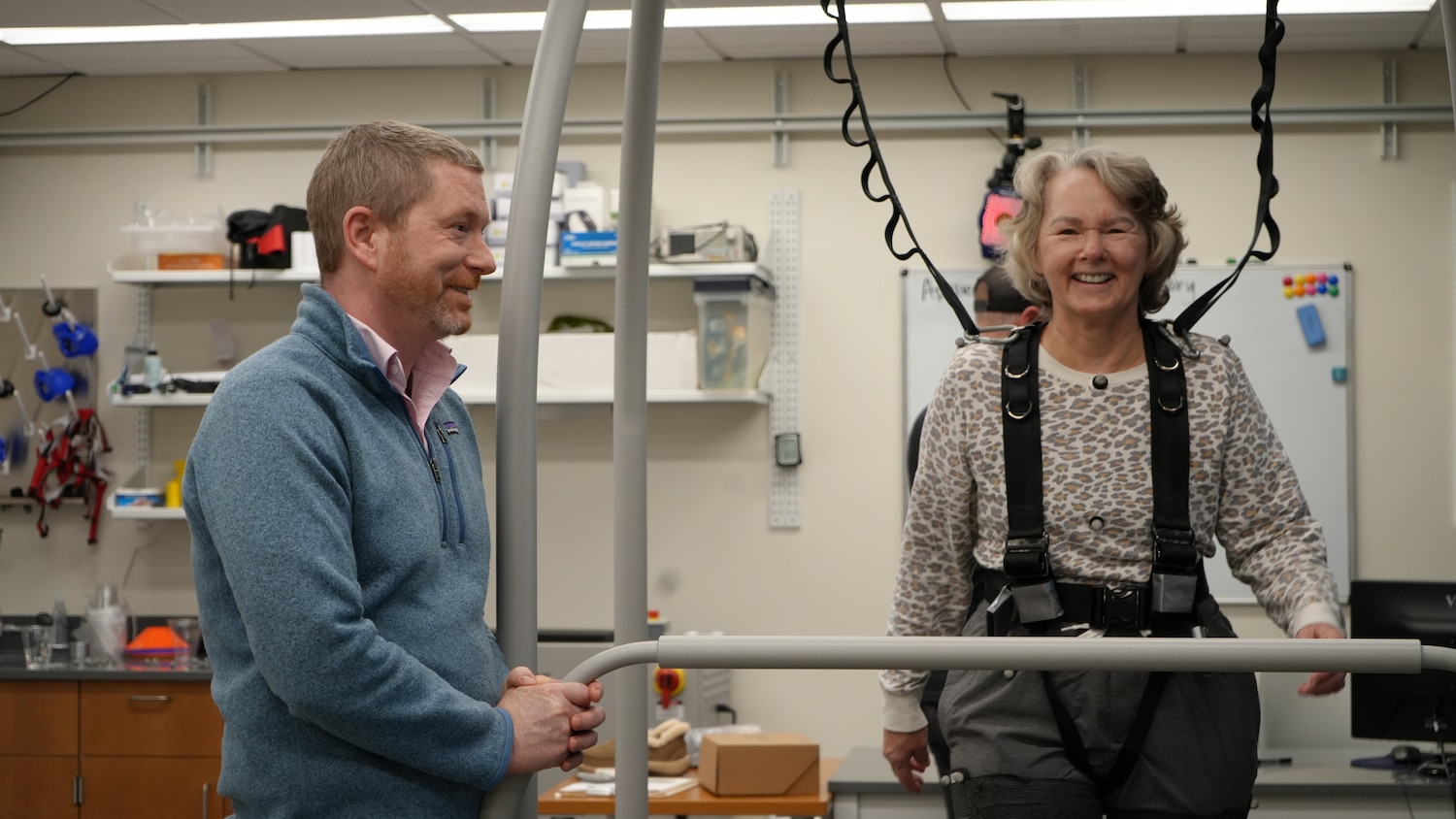How Mediation Training Could Promote Student Resilience, Well-Being

Editor’s Note: This is a guest post by Jessica Jameson, a professor of communication at NC State.
Universities are grappling with ways to help their students address a host of mental health challenges, many of which are linked to stress. One possible solution may be to train students in tools and techniques that can help them achieve balance.
Those of us who teach undergraduates have seen a steady increase in the number of students affected by diagnoses ranging from ADHD to generalized anxiety disorder and depression. Research from the American College Health Association found that the percentage of undergraduates reporting feelings of overwhelming anxiety in the previous year increased from 50 percent in 2011 to 60.8 percent in 2016. And both the Washington Post and New York Times covered Dartmouth’s nine-month review of campus life, which focused on ending the extreme behaviors (dangerous drinking, sexual assault, and other problems) that hurt too many students and undermined the important work of teaching and learning.
Many of the problems students are struggling with are related to issues of perspective-taking, self-awareness, and self-regulation. Luckily, there is a suite of skills that addresses those specific issues – and many universities already teach them under the heading of “mediation training.”
As a conflict studies scholar I recently collaborated with attorney-mediator Deborah Malizia on a journal article which argues that the skills learned in mediation training have the potential to ameliorate threats to mental health and promote resilience and overall well-being. We believe this proposition is supported by three streams of research and theory: (1) studies of the impact on student peer mediators in the K-12 context; (2) studies of the effects of social emotional learning, mindfulness practice, and emotion regulation support behaviors; and (3) theoretical support from neuroscience.
Mediation Skills
Mediation is a form of conflict intervention in which a neutral third party who has no vested interest in the outcome of the conflict facilitates a conversation among disputing parties in which they listen to each other, reassess their initial perceptions of the conflict, and collaborate to develop a mutually agreeable solution to the conflict. Skills that are typically taught in mediation training include active and nonjudgmental listening, asking open-ended questions to uncover underlying interests, awareness of nonverbal behavior, reframing perspectives and problems, and summarizing disputant communication. Mediation training also emphasizes the importance of emotional awareness (of both the self and disputants), empathy and impartiality.
Benefits of Peer Mediation on K-12 Student Mediators
Peer mediation programs across the country train K-12 students to serve as neutral third parties in conflicts among other students. Studies of peer mediation programs have found that students who receive mediation training reap the greatest benefits from the programs, including increased academic success, enhanced social and emotional competence, increased self-esteem, and reduced aggressive behavior and disciplinary action. The clear and substantial benefits for K-12 peer mediators indicate that mediation training could have similar positive impacts on college students.
Benefits of Mindfulness Practice and Emotion Regulation Support Behaviors
There is significant overlap between the skills learned and honed in mediation and the practice of mindfulness as used in several therapies for patients diagnosed with generalized anxiety disorders as well as in the mindfulness training program offered around the world – Mindfulness Based Stress Reduction (MBSR). Mindfulness includes self-regulation of attention (the ability to focus on a specific moment) and an orientation of openness, curiosity, and acceptance. There are emotional, interpersonal, and intrapersonal benefits to participating in MBSR training including increases in self-esteem, self-compassion, and the ability to cope with stress as well as decreases in anxiety and depression. Therapist trainees and medical students who have undergone mindfulness meditation training have reported increased levels of empathy.
There is a similar overlap between mediator skills and the techniques used in a recent study examining the benefits of using online messages to help others regulate their emotions. The 2017 study found that those who helped others as compared to those who received help showed the greatest decrease in depression. The study’s authors, Dore, Morris, Burr, Picard and Ochsner, concluded that “in helping others manage their emotional reactions to stressful situations, even in an online (not face-to-face) way, we can practice and hone our regulation skills, which we can then apply to improve our own emotional lives.” Given the similarity between this program and mediation practice, these findings provide strong support for our contention that mediation training and practice have positive impacts on the emotional well-being of the mediator.
Implications from Neuroscience
As if the empirical support were not enough to convince us that mediation training might help our students improve resilience and ameliorate threats to mental health and well-being, ideas from neuroscience provide theoretical support for the advantages of learning mediation skills.
According to Daniel J. Siegel, M.D., clinical professor of psychiatry at the UCLA School of Medicine and founding co-director of the Mindful Awareness Research Center at UCLA, nine prefrontal cortex functions are essential to resilience and emotional well-being. Mediator skills are closely aligned with six of these functions: (1) attuned communication; (2) emotional balance; (3) empathy; (4) moral awareness; (5) response flexibility; and (6) insight. Learning these six skills and practicing them while conducting mediation could help to counteract the undermining effects of the experience-deficient diet that pressures today’s adolescents to focus all their energy 24-7, 365 days a year, on extrinsic achievement rather than on intrinsic goals of learning for its own sake and personal development. In this stress-producing educational and social culture, almost no time remains for self-reflection and growth in self-awareness, the very skills emphasized in mediation training and practice.
Moreover, as Siegel explains in his 2013 book, Brainstorm: The Power and Purpose of the Adolescent Brain, neuroscience has taught us that experience – how we focus our attention – is key to shaping the structure of our brains. This is particularly true during the period of adolescence when the brain undergoes a substantial remodeling of its neural circuitry to increase the linkages between the prefrontal cortex (important in self-control) and the brain’s limbic system (important in processing of emotional information). The remodeling results in a more integrated neural circuitry and an increased ability to regulate emotions and engage in higher order thinking (planning, problem-solving ability, and judgment) – executive function behaviors.
Consequently, the types of experiences adolescents have and where they focus their attention – that is, what they think about, what they talk with friends and family about, and what they spend their time doing – directly impact this remodeling. Mediation training and practice would provide students an enriching experience as well as a practical and effective way to focus their attention on learning and applying skills likely to improve their emotional well-being.
Why This Matters
As college professors, we see the mental health challenges our students are facing and the associated impacts on their academic performance, coping ability, interpersonal relationships, and tendencies toward excessive drinking and other risky behaviors.
If we have evidence that there is something we can do to maximize students’ success in college and beyond, it seems we have a moral obligation to do it. Mediation training and practice not only has the potential to promote overall student health and well-being but also the ability to provide students with a useful set of life skills to help themselves and others more effectively navigate the conflicts they will face at home, in the workplace, and indeed throughout life.
We look forward to pursuing this line of research and hope others will advocate for the creation of mediation training courses at the undergraduate level as a tool to promote student health and well-being.
Note: Jameson and Malizia’s article, “Hidden in plain view: The impact of mediation on the mediator and implications for conflict resolution education,” is published in the journal Conflict Resolution Quarterly.
- Categories:


